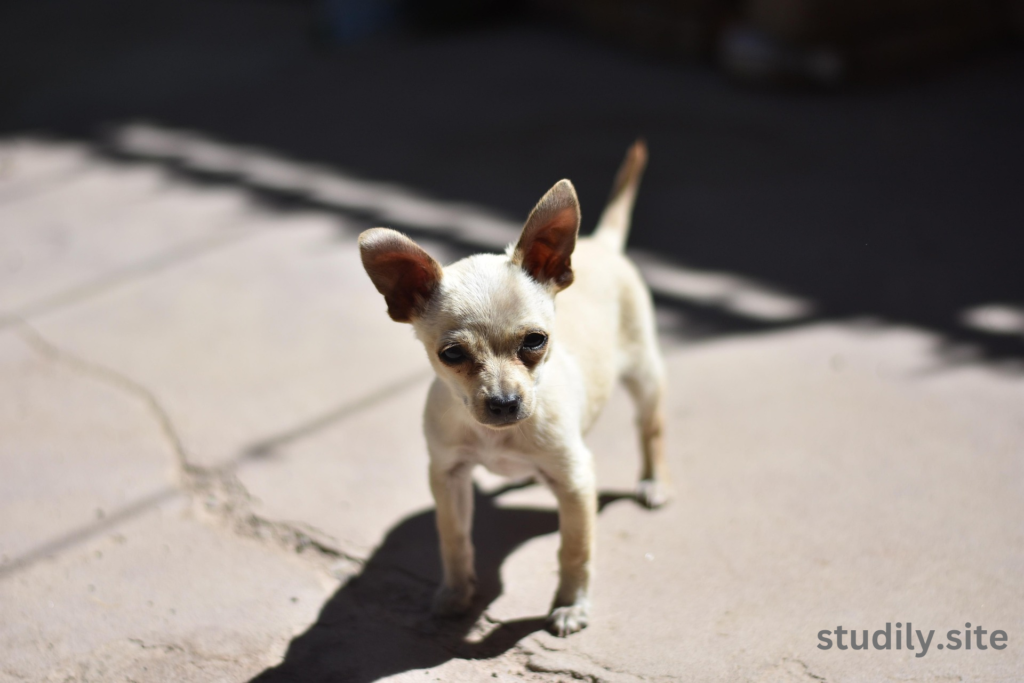Introduction to Miniature Australian Shepherd Puppies
Miniature Australian Shepherd puppies, also referred to as Mini Aussies, are a smaller version of the popular Australian Shepherd. With their high levels of intelligence, agility, and striking good looks, these small pups have won over the hearts of dog lovers across the globe. If you’re planning on bringing a Mini Aussie home, this all-inclusive guide includes everything you should know about their characteristics, care, training, and everything in between.

What are Miniature Australian Shepherd Puppies?
Miniature Australian Shepherds are a smaller breed variation, usually measuring 13-18 inches in height and 20-40 pounds in weight. Even though they share the name, Miniature Australian Shepherds were developed in America, from small Australian Shepherds, to produce a small herding dog with the same energetic spirit and IQ. With their beautiful coat hues—blue merle, red merle, black tri, and red tri—and expressive eyes, they become impossible to resist.
Mini Aussies are not a distinct breed but a miniature version, which the American Kennel Club (AKC) lists under the designation Miniature American Shepherd. They are ideal for families, singles, or anyone wanting an energetic, loyal companion in miniature form.
Why a Miniature Australian Shepherd Puppy?
Mini Aussie puppies are an excellent option for several reasons:
-
Compact Size: Great for apartments or smaller residences, they are a good fit for many living arrangements.
-
High Intelligence: Some of the most intelligent dog breeds, they are great at training and problem-solving.
-
Energetic and Playful: Great for energetic owners who love outdoor pursuits like hiking or agility sports.
-
Loyal Companions: Mini Aussies bond well with their owners, making them wonderful family pets.
-
Adaptable: They excel in many roles, ranging from herding to therapy work or just being a wonderful pet.
But with their intelligence and high energy, they need plenty of mental and physical stimulation. If not provided, they can develop unwanted behavior such as barking and chewing.
Taking Care of Miniature Australian Shepherd Puppies
Diet
Feed your Mini Aussie puppy a well-balanced, high-quality diet for proper growth. Select a top-of-the-line puppy food made for small to medium breeds, high in protein and beneficial fats. Opt for natural ingredient brands and steer clear of fillers such as corn or soy. Puppies usually require 3-4 small meals a day until the age of six months, then switch to two meals.
Ask your veterinarian to advise the correct portions according to your puppy’s activity level, age, and weight. Provide fresh water at all times and never overfeed so that they do not become obese and put pressure on their small bodies.
Grooming
Miniature Australian Shepherds possess a medium-length, double-coated coat that sheds moderately, particularly in spring and fall. Regular weekly brushing with a slicker brush prevents tangles and lessens shedding. Daily brushing might be essential for shedding seasons.
Additional grooming requirements are:
-
Bathing: every 6-8 weeks or as needed, with a dog shampoo.
-
Nail Trimming: monthly, to avoid pain or injury.
-
Ear Cleaning: weekly, to prevent infection since their floppy ears tend to trap moisture.
-
Dental Care: Brush their teeth 2-3 times a week to keep them healthy.
Exercise and Mental Stimulation
Mini Aussies are energetic dogs that need at least 60-90 minutes of exercise per day. Playing fetch, running, or agility training is ideal for their herding nature. Mental stimulation is just as crucial—puzzle toys, obedience work, or scent games challenge their smart brains.
If not properly exercised, Mini Aussie pups can get bored and develop destructive habits. A worn out Mini Aussie is a happy one, so add variety to their schedule to keep them happy.
Training Miniature Australian Shepherd Puppies
Mini Aussies are very trainable because they are smart and love to please. Train early, preferably at 8-12 weeks, to create good habits. Some tips for training are:
-
Positive Reinforcement: Reward good behavior with treats, praise, and play. Don’t use harsh punishments, as Mini Aussies are sensitive.
-
Socialization: Socialize your puppy to various people, animals, and surroundings to create confidence and avoid shyness or aggression.
-
Basic Commands: Establish sit, stay, come, and leave it early. Their rapid learning allows them to excel at advanced training such as agility or tricks.
-
Crate Training: Aids in housebreaking and is a safe place. Gradually introduce the crate with positive reinforcement.
-
Consistency: Establish firm rules and be consistent to prevent confusion.
Taking a puppy class or consulting with a professional trainer can get your Mini Aussie up to speed and improve your relationship.
Health Considerations for Mini Aussie Puppies
Mini Australian Shepherds are normally a healthy breed, living 12-15 years. They have some inherited diseases, though. Responsible breeders test for:
-
Hip Dysplasia: A hip joint malformation that may lead to discomfort or mobility limitations.
-
Progressive Retinal Atrophy (PRA): A progressive eye disease causing blindness.
-
MDR1 Gene Mutation: A drug sensitivity, typical for herding breeds.
-
Cataracts: Can impair eyesight, particularly in senior dogs.
Daily feeding, regular exercise, and proper grooming are necessary. Spaying or neutering your puppy (if not for breeding) will help lower some health and behavioral problems.
Purchasing Miniature Australian Shepherd Puppies
When purchasing Mini Aussie puppies, be certain to select a reputable breeder or opt for adoption. Here’s how to get your healthy, happy puppy:
Selecting a Breeder
-
Research: Search for AKC or Miniature American Shepherd Club of the USA registered breeders. They must offer health clearances on the parents.
-
Visit: Meet the breeder, observe the puppies’ living situation, and handle the parents to gauge temperament.
-
Health Guarantees: Make sure the breeder has a health guarantee and genetic test results.
-
Ask Questions: Ask about the puppy’s diet, socialization, and early training.
Avoid puppy mills or pet stores, as they often prioritize profit over puppy welfare, leading to health or behavioral issues.
Adoption and Rescue
Adopting a Mini Aussie from a rescue or shelter is a rewarding option. Organizations like the Miniature Australian Shepherd Rescue or local shelters may have puppies or young dogs available. Adoption fees are typically lower than breeder prices, and you’re giving a dog a second chance.
Prepping Your Home for a Mini Aussie Puppy
Before taking your puppy home, puppy-proof your living area:
-
Remove Hazards: Tie up electrical cords, poisonous plants, and small things.
-
Set Up a Space: Build a comfortable space with a crate, bed, and toys.
-
Stock Supplies: Purchase food, bowls, collar, leash, and grooming supplies.
-
Plan a Routine: Set feeding, potty, and exercise times to aid your puppy in adjusting.
Acclimate your Mini Aussie to the new home slowly, permitting them to sniff out and inspect while offering reassurance and comfort.
Miniature Australian Shepherd Puppies and Families
Mini Aussies make wonderful family pets, particularly suitable for energetic families. They are great with children and other pets if socialized. But due to herding instincts, they may bite heels, which can be controlled by training. Monitor playtime with little children to guarantee it is gentle.
Their protectiveness and loyalty make them excellent watchdogs, warning you of strangers or unusual noises. Mini Aussies do well with loving, active families when well cared for and attended to.
Fun Facts About Miniature Australian Shepherd Puppies
-
Mini Aussies were originally bred in the 1960s in California as a smaller herding dog.
-
Their coat colors may shift slightly as they age, particularly in merle patterns.
-
They are also good at sports such as agility, flyball, and competitions in obedience.
-
Most Mini Aussies are heterochromatic, with a blue eye and a brown eye, enhancing their uniqueness.
Conclusion
Miniature Australian Shepherd puppies are a delightful blend of intelligence, energy, and affection. Whether you’re drawn to their stunning looks or vibrant personality, these pups make exceptional companions for the right owner. By providing proper care, training, and love, you’ll enjoy a loyal friend for years to come. Ready to welcome a Mini Aussie into your life? Start your search with a reputable breeder or rescue today!
